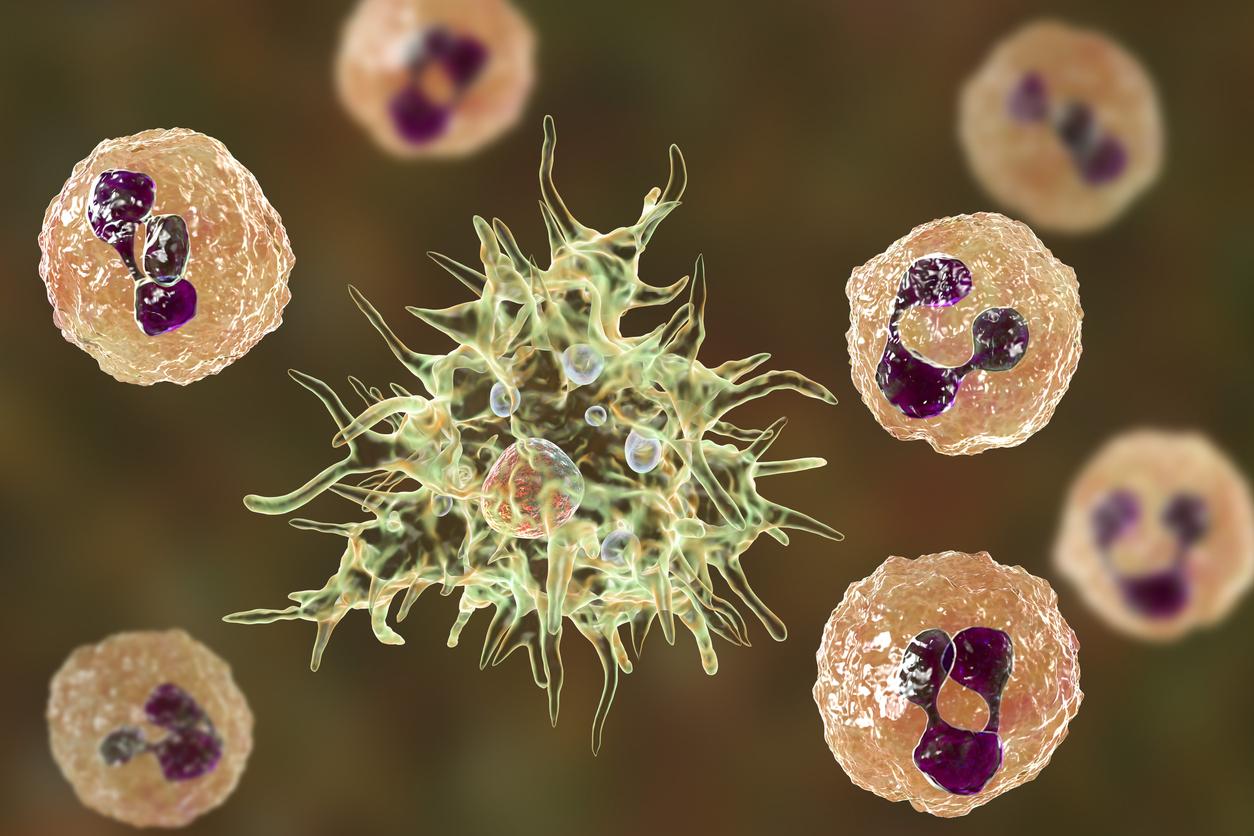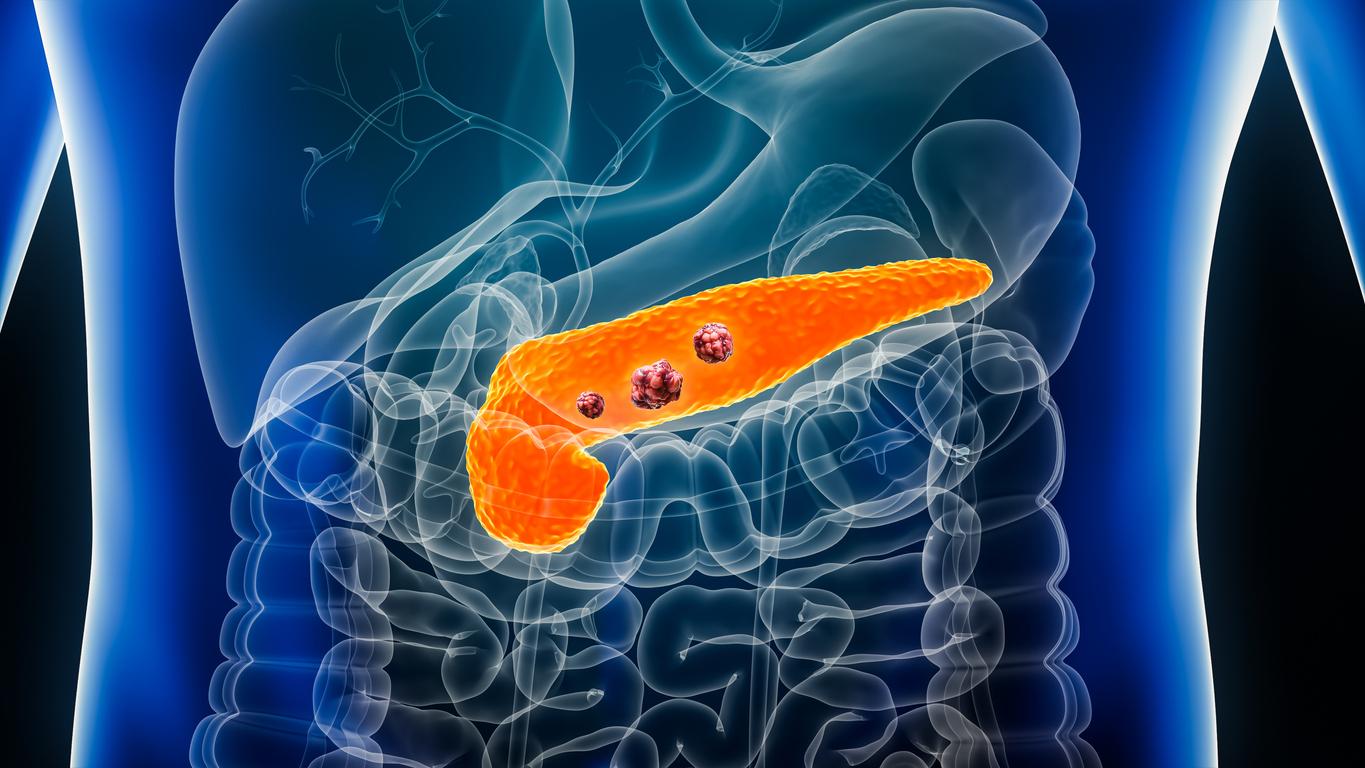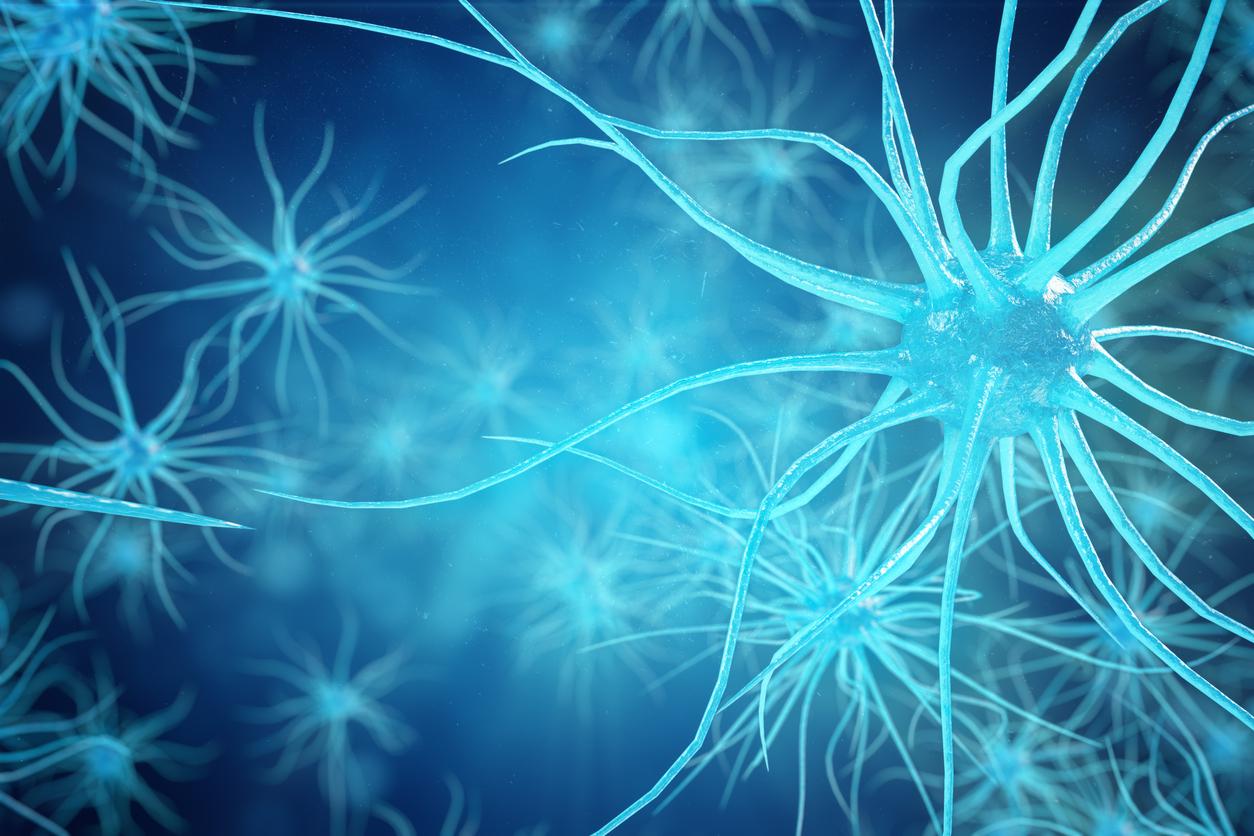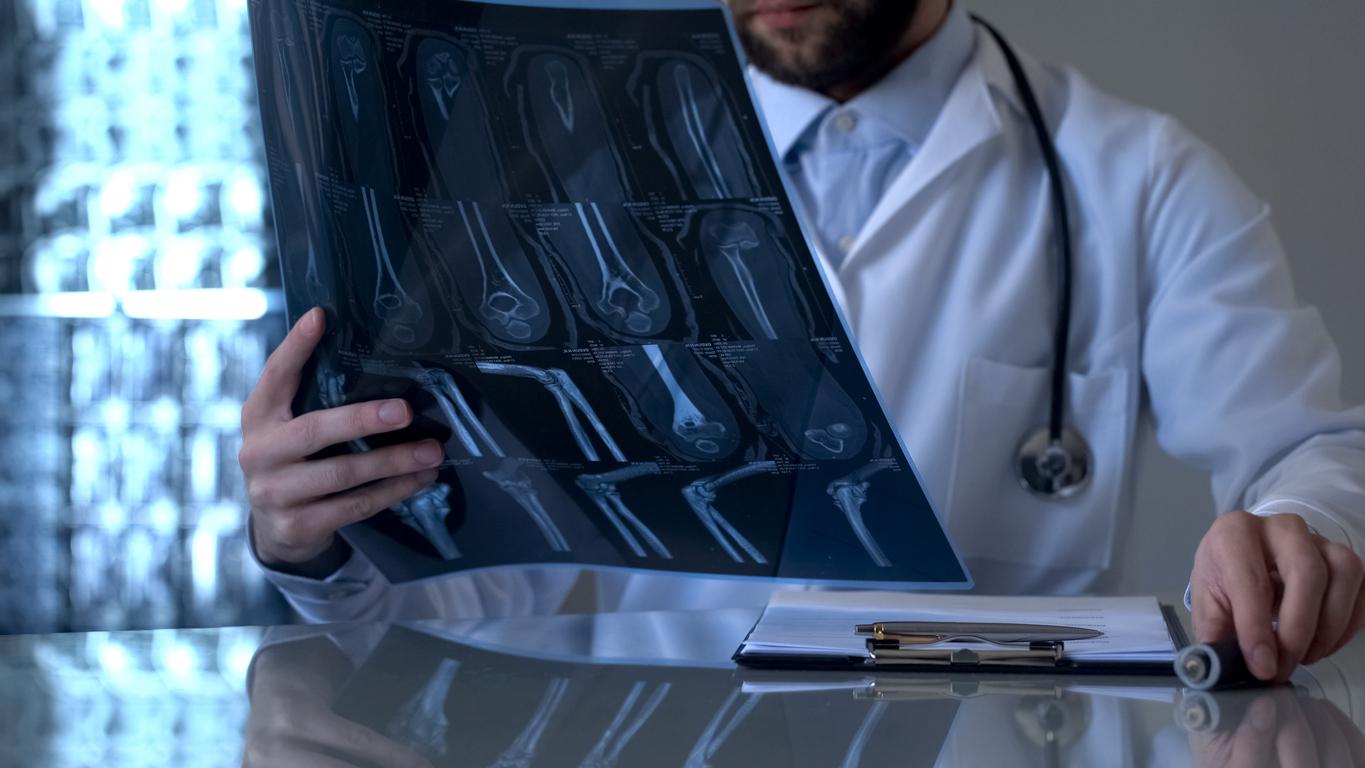American scientists have detected abnormal proteins in the cerebrospinal fluid of people with amyotrophic lateral sclerosis and frontotemporal dementia.

- New proteins, which were constructed from cryptic exons (normal portions of RNA), were detected in the cerebrospinal fluid of adults suffering from Charcot disease and frontotemporal dementia.
- According to the authors, these abnormal proteins are considered foreign by our immune system, which triggers inflammation and is believed to contribute to neurodegeneration.
- This discovery could allow early diagnosis and better management of patients affected by these neurodegenerative diseases.
Diagnosing amyotrophic lateral sclerosis (ALS), also known as Charcot disease, and frontotemporal dementia can be difficult. Indeed, there is currently no test that can definitively diagnose these neurodegenerative diseases and the symptoms may resemble those of other pathologies. To diagnose them, doctors carry out a clinical examination, assess the person’s symptoms, use a brain scan and use tests to rule out closely related conditions.
Misassembled RNA sections generated new inflammation-triggering proteins
Recently, researchers at the National Institutes of Health in Bethesda, Maryland (United States) found a solution to improve the diagnosis of Charcot disease and frontotemporal dementia. In one study, they developed a catalog of cryptic exons, or normal portions of RNA, that appear when TDP-43, a protein that regulates RNA processing, stops functioning normally. As a reminder, TDP-43 dysfunction is linked to the onset of amyotrophic lateral sclerosis, frontotemporal dementia and Alzheimer’s disease.
As part of the work, published in the journal Science Translational Medicine, the team was able to identify 65 peptides originating from 12 cryptic exons. Clearly, the misassembled sections of RNA generated new proteins, from the cryptic sequence, which are not normally found in healthy cells. The authors raised the possibility that these abnormal proteins are considered foreign by our immune system, triggering inflammation that could contribute to neurodegeneration.
ALS, dementia: this discovery “could allow the development of diagnostic tests”
Next, the scientists detected these same cryptic exons in brain samples taken from deceased adults who suffered from Charcot disease or frontotemporal dementia. They found that proteins containing cryptic sequences interacted differently with other proteins, likely changing their function.
In the final part of their research, the researchers examined the spinal fluid of patients with ALS or frontotemporal dementia. They found 18 new proteins encoded by cryptic exons in 13 genes. “The discovery of new proteins in the cerebrospinal fluid of living patients could enable the development of diagnostic tests,” concluded Michael Ward, author of the study, in a statement.

















